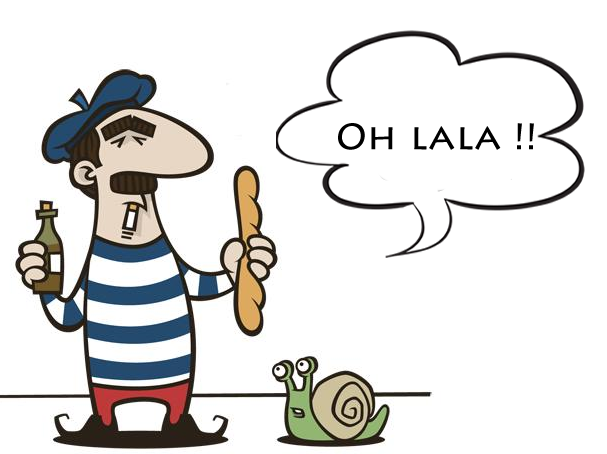Difference between revisions of "Language/French/Vocabulary/Express-Surprise"
< Language | French | Vocabulary
Jump to navigation
Jump to search
| Line 1: | Line 1: | ||
[[File:exprimer-la-surprise-en-français.png]] | [[File:exprimer-la-surprise-en-français.png]] | ||
When something unusual happens, | When something unusual happens, French people have their own casual and fun expressions like in the examples below: | ||
French people have their own fun expressions like in the examples below: | |||
==Ça, alors !== | ==Ça, alors !== | ||
* | *My goodness! | ||
== | ==Trop bien !== | ||
*How good! | *How good! | ||
==C'est | ==C'est pas possible !== | ||
* | *I can’t believe this! | ||
==C'est magnifique !== | ==C'est magnifique !== | ||
| Line 33: | Line 28: | ||
==Oh la la !== | ==Oh la la !== | ||
*Oh! | *Oh my God! | ||
==Ouf !== | ==Ouf !== | ||
| Line 51: | Line 46: | ||
==Quoi ?== | ==Quoi ?== | ||
*What? | |||
*Quoi ? Il a fait ça? (What? He did that?) | *Quoi ? Il a fait ça? (What? He did that?) | ||
==C'est pas vrai ?== | |||
== | *No way! | ||
==N'importe quoi!== | |||
*Whatever | |||
* | |||
==Je n’en crois pas mes yeux !== | ==Je n’en crois pas mes yeux !== | ||
*I can’t believe my eyes! | *I can’t believe my eyes! | ||
==Trop bien !== | ==Trop bien !== | ||
*Awesome! | *Awesome! | ||
| Line 70: | Line 60: | ||
==Putain !== | ==Putain !== | ||
*f**k! | *f**k! | ||
Among young French people, | Among young French people, "putain" is so common, it may even be used as often as the word "oui". Its nearest equivalent in English is probably “f**k!”. | ||
It can be used to express anger, but can also be used to describe something amazing : "C'est un putain d’artiste!" (it's a f****ing! artist). | It can be used to express anger, but can also be used to describe something amazing : "C'est un putain d’artiste!" (it's a f****ing! artist). | ||
Revision as of 16:07, 8 July 2017
When something unusual happens, French people have their own casual and fun expressions like in the examples below:
Ça, alors !
- My goodness!
Trop bien !
- How good!
C'est pas possible !
- I can’t believe this!
C'est magnifique !
- Magnificent!
Génial !
- Great!
Impressionnant !
- Awesome!
Incroyable !
- Amazing!
Mon Dieu !
- Oh my God!
Oh la la !
- Oh my God!
Ouf !
- Phew!
Quel malheur !
- What a disgrace!
Comme c’est beau
- How beautiful!
Quel travail !
- What work!
Quelle chance !
- What a Luck!
Quoi ?
- What?
- Quoi ? Il a fait ça? (What? He did that?)
C'est pas vrai ?
- No way!
N'importe quoi!
- Whatever
Je n’en crois pas mes yeux !
- I can’t believe my eyes!
Trop bien !
- Awesome!
Oh la vache !
- holy cow!
Putain !
- f**k!
Among young French people, "putain" is so common, it may even be used as often as the word "oui". Its nearest equivalent in English is probably “f**k!”. It can be used to express anger, but can also be used to describe something amazing : "C'est un putain d’artiste!" (it's a f****ing! artist).
